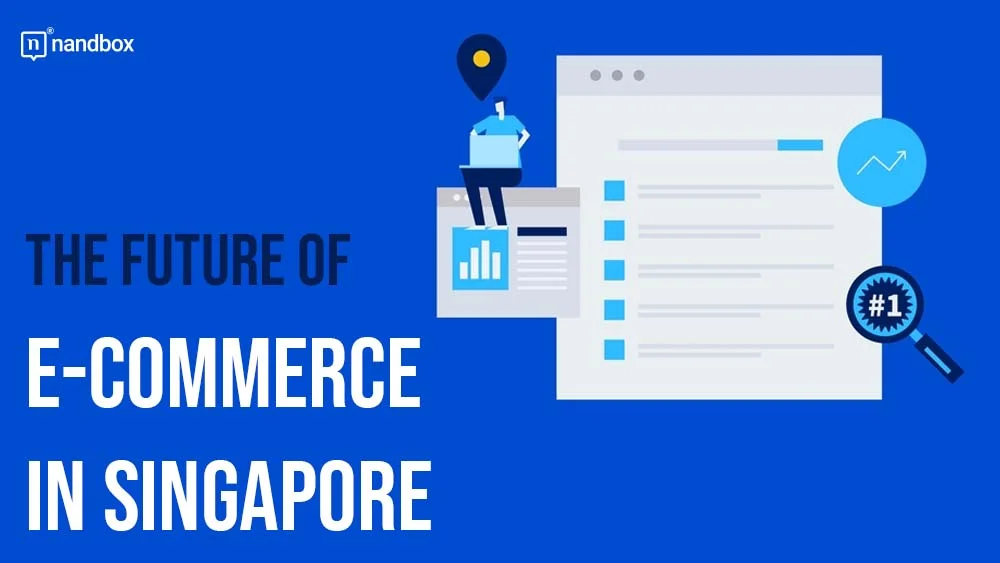E-commerce and Its Rapid Growth in Singapore
The e-commerce scene in Singapore is thriving, and it’s no surprise. With a highly connected population, strong government support, and a culture of innovation, Singapore has become a hub for digital commerce in Southeast Asia. As someone who has been in the digital marketing field for years, I’ve seen firsthand how businesses, big and small, are tapping into this wave. But to stay competitive in this fast-paced market, understanding the role of SEO and digital marketing is non-negotiable.To stand out, many businesses are partnering with the top SEO company in Singapore to ensure their online presence is optimized for search engines. This helps them attract more organic traffic and stay ahead of the competition. Let’s dive into how businesses can leverage these strategies to future-proof their e-commerce ventures.
The Rise of E-commerce in Singapore
Key Factors Driving E-commerce Growth
Singapore’s e-commerce growth stems from several factors. Firstly, its tech-savvy population means that people are comfortable shopping online. The government’s push for a smart nation has also helped, with initiatives to improve internet connectivity and digital literacy. Moreover, the COVID-19 pandemic accelerated the shift toward online shopping. People who were once hesitant to make online purchases now see it as the norm. Personally, I’ve worked with businesses that saw their online sales double during this period, simply because they optimized their digital presence.
Major E-commerce Platforms in Singapore
Platforms like Shopee, Lazada, and Qoo10 dominate the market here. Each has its unique selling points, but they all rely heavily on robust digital marketing strategies to attract both sellers and buyers. For instance, Shopee leverages flash sales and influencer collaborations, while Lazada focuses on personalized shopping experiences through AI.
The Role of SEO in Singapore’s E-commerce Growth
Importance of Local SEO for E-commerce Success
Local SEO is a game changer, especially in a competitive market like Singapore. When people search for products online, they often look for nearby options. This is where local SEO comes in, helping businesses rank higher in search results for location-specific queries.For example, optimizing your site for keywords like “best electronics store in Singapore” or “Singaporean organic skincare” can drive highly targeted traffic. Google My Business is another powerful tool, ensuring your business appears in local search results and on Google Maps. In my experience, businesses that invest in local SEO often see a significant uptick in foot traffic and online sales.
On-Page SEO Tactics for E-commerce Websites
On-page SEO is the backbone of any e-commerce strategy. It’s all about optimizing your website’s content and structure to make it easier for search engines to understand. Start with your product pages—each should have a unique title, description, and high-quality images with alt text.Fast-loading pages are crucial too. Nobody likes waiting for a slow site to load, and search engines penalize sites with poor performance. One client I worked with reduced their page load time by three seconds and saw a 20% increase in conversions.
Digital Marketing Strategies to Boost E-commerce Sales
Social Media Marketing for E-commerce
Social media is where your customers hang out, so it makes sense to meet them there.Platforms like Instagram, Facebook, and TikTok are perfect for showcasing products, engaging with customers, and running targeted ads.For example, Instagram’s shoppable posts let users purchase directly from your feed. Brands can significantly boost their sales by posting high-quality product photos and collaborating with influencers who share their values. It’s not solely about selling; it’s about fostering a community around the brand.
Pay-Per-Click (PPC) Advertising for Immediate Results
While SEO is a long-term game, PPC advertising offers immediate visibility. Google Ads and social media platforms allow you to target specific demographics, ensuring your ads reach the right audience.Local fashion retailers leverage PPC to promote their seasonal sales. By strategically selecting keywords and targeting, they achieved a 300% return on ad spend within a month. It all comes down to spending wisely and using data analysis to refine campaigns.
Email Marketing for Customer Retention
Email marketing might seem old-school, but it remains one of the most effective tools for retaining customers. Personalized emails—whether they’re promoting a new product or reminding customers about their abandoned carts—can make a big difference.I always advise my clients to segment their email lists. This way, you can send targeted messages that resonate with specific customer groups, driving higher engagement and conversions.
Emerging Trends in Singapore’s E-commerce Landscape
The Growth of Mobile Commerce
Mobile commerce, or m-commerce, is on the rise. With smartphones in almost every pocket, more people are shopping on their phones than ever before. In Singapore, it’s common to see commuters browsing e-commerce platforms during their daily MRT rides.Optimizing your site for mobile isn’t optional—it’s essential. This includes responsive design, fast load times, and easy navigation. Trust me, a seamless mobile shopping experience can make or break a sale.
AI and Personalization in E-commerce
Artificial intelligence is revolutionizing e-commerce. From chatbots that handle customer inquiries to personalized product recommendations, AI tools enhance the shopping experience.Personalized email recommendations have proven to significantly boost sales.For instance, when a customer frequently purchases skincare products, AI can suggest similar items, creating a more intuitive and satisfying shopping experience.
Sustainability and Ethical E-commerce
Consumers today care about more than just price and quality—they want to support brands that align with their values. This is where sustainability comes into play. Brands that adopt eco-friendly practices, like using sustainable packaging or donating a portion of sales to environmental causes, can attract a loyal customer base.In Singapore, a growing trend among e-commerce brands is the emphasis on sustainability efforts in their marketing campaigns. This approach benefits not only the planet but also their business.
Challenges and Opportunities for E-commerce in Singapore
Navigating a Competitive Market
Singapore’s e-commerce market is competitive, but that’s not necessarily a bad thing. It pushes businesses to innovate and differentiate themselves. The key is to identify your unique selling proposition (USP) and communicate it effectively.Whether it’s offering superior customer service, exclusive products, or faster delivery, your USP can set you apart. One strategy I recommend is using SEO to highlight these differentiators on your website and in your marketing content.
Opportunities for Growth Through Digital Transformation
Digital transformation offers immense opportunities for e-commerce growth. Even small businesses can scale by leveraging affordable digital tools. For instance, setting up an online store is easier than ever with platforms like Shopify or WooCommerce.The Singaporean government also supports digital initiatives, providing grants to help businesses go digital. If you’re just starting, this could be the perfect time to jump on board and take advantage of these resources.
Preparing for the Future of E-commerce in Singapore
The future of e-commerce in Singapore is bright, but staying ahead requires continuous learning and adaptation. SEO and digital marketing are not just trends—they’re essential tools for any business looking to thrive in this competitive landscape.Working with various e-commerce brands demonstrates that investing in strategies like search engine optimization, targeted ad campaigns, and customer engagement through social media consistently delivers strong results. Each effort contributes to sustainable, long-term growth. So, are you ready to elevate your e-commerce game? The time to act is now. The nandbox App Builder empowers e-commerce businesses to thrive by enabling seamless, customizable app solutions that enhance user engagement and drive sales.





